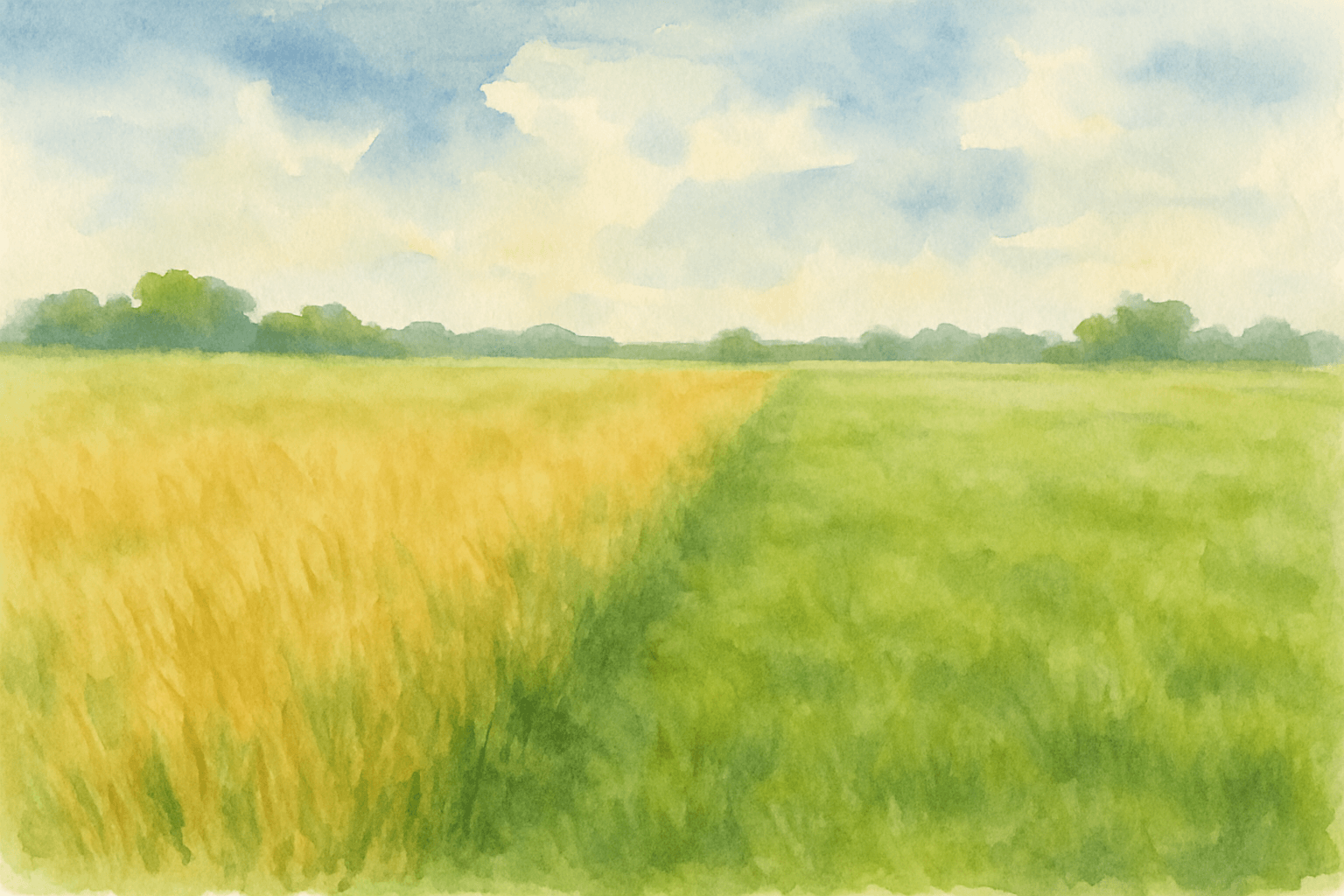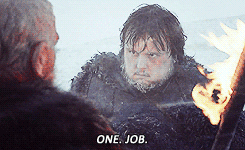Giving technical talks in sales
After some internal brainstorming about doing “thought leadership” activities for sales pipeline generation, I was asked why I do mostly technical “non-sales” events when my job is in sales.1
Much like the grassy field in the picture, there’s multiple ways to grow. Some events primarily benefit me personally while others benefit me more professionally. The skills gained in one reinforce the other. There’s a distinct separation on topics for each conference talk because there are 👇🏻
Two types of conference talks
- Sales-led events
- Community-led events
Lots of great events have elements of both! Events cost money to put together. Most events offset that with sponsorships. The folks who sponsor in turn want their branding out there. This can be sponsored talks, lunch/coffee/drinks, organizing tours through the vendor hall, etc. It’s not a charity and ideally, both sides win.
Both of these tracks need content. Sales engineers do both. It’s in the name and the job description, yet giving conference talks can feel complicated. 😅
Here’s how I’ve been navigating that so far.
KYA - know your audience
Each call for proposals/papers (CFP) has a prompt about what they’re looking for. Not following this is one of the easier ways to weed out when reviewing proposals too. This part should be obvious - most will explicitly say where each type of content is welcome.
A lot of the audience information can be gathered organically too. Talk to folks who’ve been to that event before and/or know the organizing parties. What’s the charter? How is that event getting marketed to attendees? There’s no substitute for first-hand knowledge.
Review the sponsorship prospectus for the event. This is a document that explains to folks who may spend money to show up at the event why it’s a good investment. It’s a gold mine of info about the number of attendees, with rough breakouts of job titles and industry data. Would this talk be valuable to this audience?
There’s a large risk if there are mismatched expectations here. Showing up with a terrible pitch to a sales event or the very best one to a non-sales event is at best a waste and at worst reputationally challenging. In general, if you pay to give a talk there, it’s expected to have some explicitly “sales-y” content.
Tactically, my advice here boils down to
- Read and understand the CFP for the event
- Actually give the talk you said you would give in that submission
KYJ - know your job
At work, I have one job and that’s bringing in money to my employer. When I’m an engineer, that’s solving business problems with code for money. When I’m in sales, it’s bringing in money so engineers can solve problems with code. They’re different skills that each require practice to remain good at. Both are built on technical competence. Many of the best sales engineers I’ve worked with do both of these things well and practice both regularly.
The part of sales engineering that surprised me the most was all of the opportunities coming out of nowhere for #thought-leadership. There is an abundance of journals and working groups and video channels that drive this “long tail of content” … and I should definitely participate “for exposure”.2 🙈
I’m not convinced of the value in spending time writing white-papers no one will read and panels attended by folks that more or less have the same experiences you do. That doesn’t mean that you should never do anything that doesn’t retire quota.3
However, you should 👇🏻
KYM - know your motivation
In both engineering and sales, giving conference talks is usually extracurricular. Communicating clearly about something technical is incredibly impactful to a career in engineering and in sales, though, so there’s some “mutual benefits” that blur these lines.
Why do you want to give this talk at this event?
As an engineer, talks have tons of professional benefits. I’ll never get tired of sharing Troy Hunt’s piece on why online identities are smart career moves . Having an established public body of work showing competence in a technical subject pays dividends for your current role and opens doors to whatever’s next over a long career. Conferences have introduced me to phenomenally interesting folks and new ideas to explore.
In sales, these events can have a measurable marketing impact on sales pipelines. Some of the folks in the audience or on the show floor may have a problem your company solves uniquely well. It gets the company brand “out there”, generates leads to talk to, and can open the door to doing it again at another event.
Anecdoteally, success in one of these things isn’t related to success in the other. More importantly …
You can be both “an engineer” and “in sales”
There was a time not long ago when this was a revelation to me. 🙉
Just “building a good thing” doesn’t translate to customers with money magically appearing to buy said good thing … bringing a product to market is a ton of hard work.
At any given time, there’s an expectation that you’ll be more of one than the other. That’s fine! Some activities benefit one “side” of these skills way more than the other, too. It’s useful to be able to do both when it’s your job to be able to do both. Be what you’re needed or expected to be at each event.
Here’s some guidelines I’ve found helpful:
Pick a side
This is pretty straightforward most of the time if you’ve done some research on the event, but here’s some examples:
- Give a tech talk at a meetup group - not sales
- Give (more or less) the same tech talk at a prospective customer’s engineering all-hands - sales
- Talk at a conference using a sponsored session - sales
- Talk at a tech conference with an open CFP - not sales
- Deliver a workshop at an industry trade group for your company - sales
- Deliver (most of) that same workshop to a community user group - not sales
Try not to use your personal time doing things that don’t benefit you directly outside of your current job. Likewise, don’t ask for work budget for a non-work thing. Use your own time and budget (like your professional development funds) for these.4
Full disclosure
Where there’s overlap between “day job in sales” and “engineering”, just … own it? Most of us have day jobs. It doesn’t have to be a Super Serious Public Service Announcement. “I work at company and all opinions are mine” is fine. 🤷🏻♀️
Working in any part of field engineering (pre- or post-sales) in one domain means spending a lot of time on it. Writing something out for others means you understand it better yourself. In the field, you can also share that with others in your team or on-site to make solving a problem you’ve seen before repeatable. There’s a decent chance you’ve seen problems or situations no one else has, thanks to being dedicated to a problem and not a particular company’s way of solving it.5
Being generous with this knowledge pays dividends to your own learning, at this job and maybe helps open the door to the next one, and probably more I can’t think of yet. 🎁
Enjoy it!
You know a thing! Sharing is caring. It helps you and helps others (hopefully). This should be fun and something you want to do. If it isn’t … don’t? There are tons of ways to be a “good engineer” or be good in sales. Most don’t include standing in front of a bunch of people at once.
There’s no shortage of things to worry about that take away from this joy. Try not to focus on it. Don’t get bent out of shape about the #thought-leadership or impressions/views/whatevers on social. Also don’t worry about the Internet Men Who Explain Things because they never truly go away. There’s no rule about having to engage with them either. 😇
Conclusion
Whether you’re wearing your engineering hat or your sales hat, you’re still you. Just be upfront about which role you’re playing at the moment. Sharing your technical expertise benefits both “hats”, so enjoy the process and don’t overthink the boundaries as long as you’re being honest about where you’re coming from today. 😊
Footnotes
-
Many thanks to my colleague for asking some questions about why I do both, forcing me to think it through (in writing). ↩
-
The Oatmeal - You’re doing it for the EXPOSURE ↩
-
How we get paid in sales, for those not familiar with sales. :-) ↩
-
It’s basic “time charging” guidance for those who’ve never been hourly billable. ↩
-
Having been asked the same question multiple times in different settings is how most of this blog’s content starts, too. ↩


